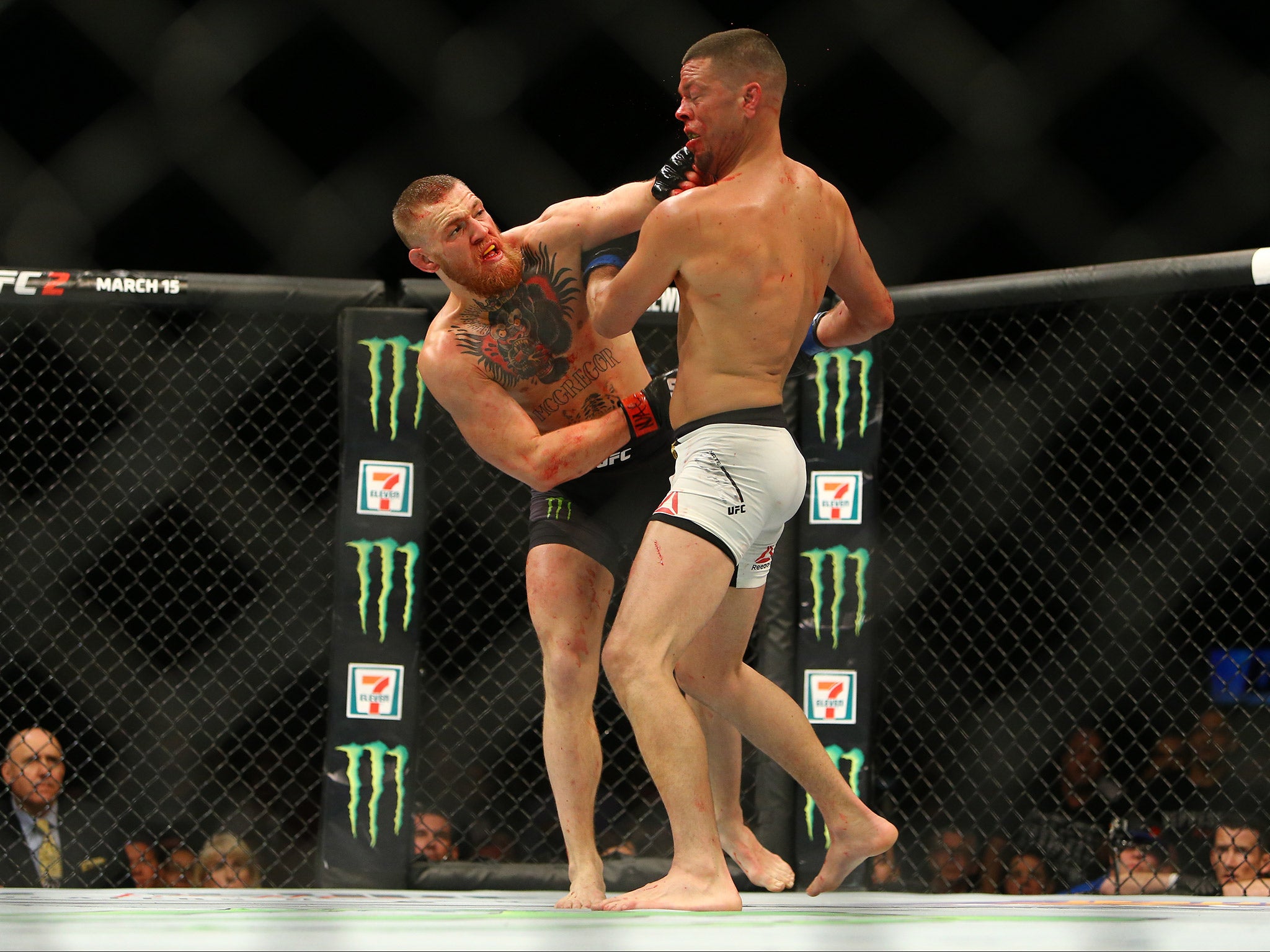Conor McGregor fighting at featherweight 'shouldn't be a problem', claim experts
Will we ever see McGregor fight at featherweight again? Combat sports nutrition expert weighs in on the matter

Following the announcement last week that Conor McGregor will rematch Nate Diaz at UFC 200 again at the 170lbs welterweight limit, many have questioned whether the Irishman will ever return to the featherweight division or whether he is truly suited to the higher weight classes.
Despite his loss to Diaz in March, we saw a much happier McGregor during fight week and the fully hydrated McGregor that stepped on the scales at the weigh-ins was a stark contrast to the gaunt, pale looking McGregor we see when he makes 145lbs.
Speaking after the fight, McGregor said he failed to manage his energy correctly at the higher weight class and offered it as a reason for his defeat.
"I feel I was simply inefficient with my energy," he said. "I went into panic mode. It was just a shift of energy and he capitalised on it. I think with a bit of adjustment and a bit of recognition it must take more than one, more than two, more than three to put the heavier man away."
Darren Deane of combat sports nutrition and training experts Physiques Training gave us some further insight as to why McGregor may have found it difficult to adjust to fighting at the higher weight.
"Having worked with elite combat athletes, you will find that many of them will enter the contest near their optimum sparring weight," said Deane.
"This is normally a lot heavier than their weigh-in limit. So in theory, Conor would have been training and sparring for a large duration of his camp at the weight he was in the octagon that night.
"The thing is, as Conor admitted himself he didn’t utilise his energy sufficiently. Fighting a bigger man than you are used to and seeing what are normally knock out punches to be soaked up, would’ve have put Conor in a state of panic as he admitted after the fight.
"If you panic, the body will release adrenaline, which can, in turn, lead to something we call an ‘adrenaline dump’ where your heart rate and blood pressure rise considerably in a short space of time. This could possibly be a reason behind the fact that Conor’s conditioning let him down at UFC 196."
With McGregor now fighting two fights in succession at 170lbs, one of the biggest questions is whether he will ever return to the featherweight division. Many have suggested that McGregor would find it hard to make the weight limit again but Deane said it would certainly be possible with the right plan weight management plan in place.
"Making the 145lb weight limit shouldn’t be a problem for Conor again, although looking at his physical shape at the 145lb weigh-ins, it is clear he puts his body through hell to get there," said Deane.
"The body is a very clever and complex machine and he has made this weight on numerous occasions so his body has a memory of what it is like to get there.
"He will have gained extra muscle fighting at 170lbs but using a lesser amount of protein in his nutrition plan will help him reduce his muscle mass. He actually wants to be in a ‘catabolic’ state where his body will use muscle for energy."

Deane did however warn against moving up and down weight classes too often and suggested it could potentially have a long-term effect.
"Long term, fluctuating so much between weight in such a short space of time can have a bad effect on the body. In a way, it is a more advanced and technical form of ‘yoyo’ dieting, where you are heavy then lose bodyweight quickly before bouncing straight back up to the body’s comfortable weight when resuming a normal calorific intake.
"The stress put on the body’s organs is not good, especially on the kidneys where eating a high protein diet and then effectively eating normally can increase creatinine levels (toxins).
"Also, you are playing with your hormone levels which can again cause problems to your health. Things like your Thyroid, Adrenal glands and Insulin levels can all be affected by severe weight cutting and ‘yoyo’ing."
Despite these potential issues, Deane reiterated that with the right advice and right nutritional plan in place, McGregor should have no problem if he did decide to make 145lbs again.
"Although Conor has now fought at two different weight classes across three weight limits, switching from eating to maintaining size and strength, to taking in fewer calories to reduce his overall bodyweight to make the limit, shouldn’t be a problem."
McGregor's next featherweight opponent is likely to be decided at UFC 200 when former champion Jose Aldo takes on Frankie Edgar for the interim UFC featherweight title. It's rumoured that the winner could go on to face McGregor later in the year to unify the titles at the UFC's first ever show in Maddison Square Garden.
Join our commenting forum
Join thought-provoking conversations, follow other Independent readers and see their replies
Comments
Bookmark popover
Removed from bookmarks